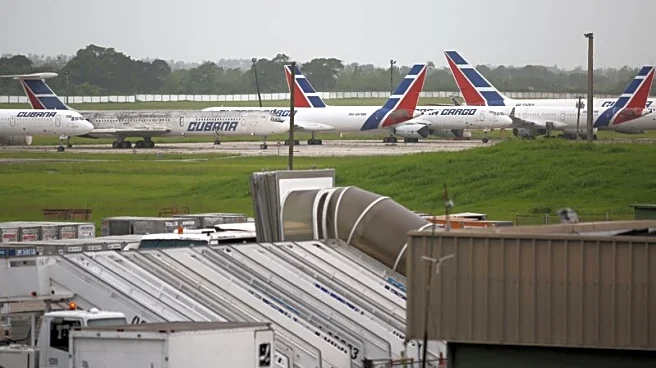Rapid Read • 7 min read
Postal services across Europe and Asia are pausing shipments to the United States due to the termination of the de minimis tariff exemption by the Trump administration. This exemption previously allowed goods valued under $800 to enter the U.S. without incurring duties. The decision, announced by the White House, is linked to concerns over illicit substances, such as synthetic opioids, being smuggled into the country through low-value packages. Major postal services, including DHL, have announced they will temporarily stop accepting parcels destined for the U.S. until new processes required by U.S. authorities are clarified. Countries like Denmark, Sweden, Italy, Austria, France, Belgium, the U.K., Singapore, and Thailand have also announced similar pauses. The exemption's end is set to take effect on August 29, and it has already been removed for China since May.
AD
The halt in shipments underscores significant disruptions in international trade logistics, affecting businesses and consumers reliant on cross-border e-commerce. The de minimis exemption facilitated the smooth entry of millions of small packages into the U.S., supporting global supply chains and consumer access to international goods. The removal of this exemption could lead to increased costs and delays for businesses, particularly those in fast fashion and other sectors that depend on low-value shipments. Additionally, the decision reflects broader U.S. efforts to tighten customs regulations and combat the entry of illegal substances, impacting international postal services and potentially altering global trade dynamics.
Postal services and international businesses are expected to work closely with U.S. authorities to adapt to the new requirements. This may involve developing new systems for customs duty collection and data transmission to U.S. Customs and Border Protection. The situation could prompt diplomatic discussions as affected countries seek clarity and potential adjustments to the new rules. Businesses may also explore alternative shipping methods or adjust their supply chains to mitigate the impact of these changes.
AD
More Stories You Might Enjoy











